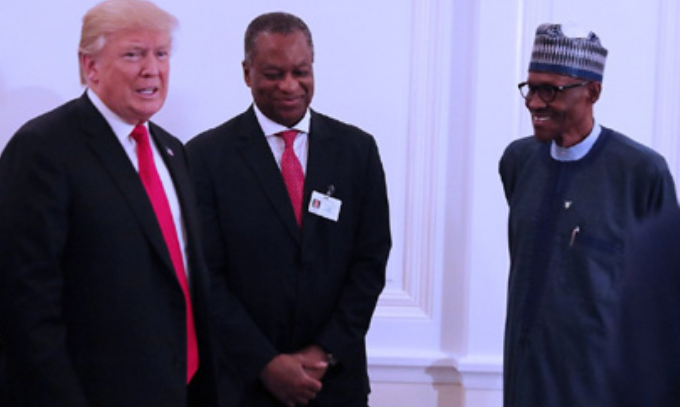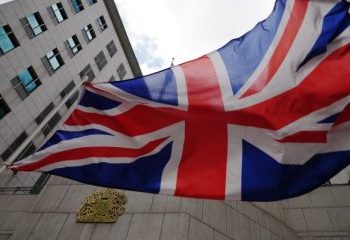British businessman Simon Boyd recalls winning a big contract to build an aircraft hangar in France: only to lose it because he couldn’t secure the required French insurance in time.
“We tried very, very hard to sort it but it was unsortable, because we are not a French company,” said Boyd, managing director of Reid Steel which employs 130 people and has exported to around 140 countries.
At his office in the southern English town of Christchurch, Boyd has a file 10 cm (four inches) thick of correspondence he wrote to the British government, EU officials and others to try to solve the problem. “It’s easier for us to export to Mongolia than to France,” he told Reuters.
The kind of frustration he felt at losing the 1.5 million pound deal in 2009 – it would have been worth US$1.85 million at today’s exchange rate – is shared across the European Union.
In principle the EU’s single market ensures people based in one member state are free to do business in others without any barriers. In practice companies, professionals and traders complain of running into practical problems similar to Boyd’s. The single market rules, they say, are applied at best unevenly.
As Britain prepares to negotiate its departure from the EU, the bloc’s most powerful leaders say the single market is an indivisible package. Britain must accept and enforce all its rules to retain tariff-free access to a market of close to 500 million people, or lose all the rights that members enjoy.
And yet the experiences of people trying to work across EU borders suggests member states often enforce single market principles selectively to suit their own interests.
If this is the case, why should the British government not negotiate a Brexit deal to include the single market rules that it wants, such as on free trade, and exclude those that it does not, such as on immigration from the EU?
FOUR FREEDOMS
The single market emerged from the 1992 Maastricht Treaty on European integration. This enshrines the EU’s “four freedoms” – of movement of goods, capital, people, and services.
Yet, 24 years later the bloc still has a patchwork of national regulations that result in an uneven playing field. The European Commission said in July that the market “is not always running as smoothly as it should”.
For Britain, this means access to the single market should not be a “take it or leave it” proposition after Brexit. If the rules are applied flexibly within the EU, there is scope for flexibility in divorce negotiations too.
“The freedoms are not switches which can only be off or on, but more like volume controls with many intermediate settings between zero and max,” said one British official, speaking on condition of anonymity. “Once the rhetoric calms, it is clear that the four freedoms have never been absolute.”
Such comments signal Britain’s push for a bespoke deal with the EU. Prime Minister Theresa May has already said the country does not face a “binary choice” between curbing immigration and getting a good trade agreement.
May has promised to trigger divorce proceedings with the EU by the end of March, and so far the bloc has portrayed the single market as a set meal, rather than an à la carte menu that Britain can pick and choose from.
This week German Chancellor Angela Merkel described the four freedoms as essential for the EU. “That will be the basis on which we lead the negotiations,” she said. European Commission Jean-Claude Juncker has gone further, saying the EU must be “intransigent” with London.
FINES START FLYING
In France, other EU citizens cannot freely work in trades such as hairdresser, baker and even blacksmith. Under health and safety rules, they need diplomas that can take several years of study. The regulations also offer small traders protection from competition from big businesses such as supermarkets.
While foreign qualifications may be accepted, they usually have to be approved by boards or chambers of commerce. Likewise, EU teachers must pass a test and become a French civil servant to work in secondary schools there.
In the Czech Republic, dozens of removal companies have stopped sending their trucks to France, where they are penalised as their drivers earn less than the French minimum wage. “When fines start flying, the customers won’t pay for them,” said Vojtech Hromir, secretary general of the Czech association of road transport operators.
While Merkel insists on the four freedoms, the British official said Germany has been “arguably the main obstacle to the full implementation of free movement of services”.
German members of the upper house of parliament objected last month to the implementation of free movement in the legal services field.
Lawyers argue there are practical considerations. “The mere fact that you studied, say, Italian law, does not really allow you to advise on German law,” said Kai Schaffelhuber, partner at Allen & Overy law firm in Frankfurt. “It’s a consumer protection rationale.”
PRINCIPLES TRUMP PRACTICE
Some feel that, ironically, Britain alone seems to be applying the rules evenly.
“I am generally appalled at how the EU leadership, including Merkel, keep stridently insisting there can be no Europe à la carte,” said Vanessa Rossi, an independent consultant and former senior fellow of London-based think tank Chatham House.
“Everything they do – and frequently choose to ignore rather than enforce according to supposed agreements – is not only à la carte but comes with every little adjustment demanded by any diner – except, it seems, the UK.” she added.
Some say EU leaders could divide the four freedoms in a deal with Britain – which is keen to curb immigration but keep access to the bloc for the London financial centre – if they wanted.
“The idea that you get them all or none of them is, from a legal viewpoint, utter rubbish,” said Schaffelhuber.
He cited the example of Switzerland, which allows free movement of people with the EU and is working on a compromise to preserve this following a 2014 referendum when Swiss voted to curb immigration from the bloc.
“In the relationship with Switzerland, we have free movement of people to a very high degree but there is no freedom of services for the Swiss financial industry to provide services in the EU – and vice versa … So why not the other way around?”
The answer lies in politics, not law, and the threat the remaining 27 EU states feel Brexit poses.
“The EU27 cannot afford to open a Pandora’s box of allowing recontracting on basic principles of European integration,” said Andreas Woergoetter at the Technische Universitaet in Vienna.
However imperfect the four freedoms may be, an “à la carte” deal with Britain risks other countries demanding concessions, ending up with the whole project unravelling.
“The EU27 will say, ‘it’s a work in progress’,” said Simon Tilford, deputy director at the Centre for European Reform. “They will say: ‘The aspiration is four fully functioning freedoms, so we can’t do anything to compromise our ability to meet that aspiration at some point’.”
(US$1 = 0.8122 pounds)
(Additional reporting by William Schomberg in London, Michel Rose in Paris and Robert Muller in Prague; editing by David Stamp)
– Reuters






















